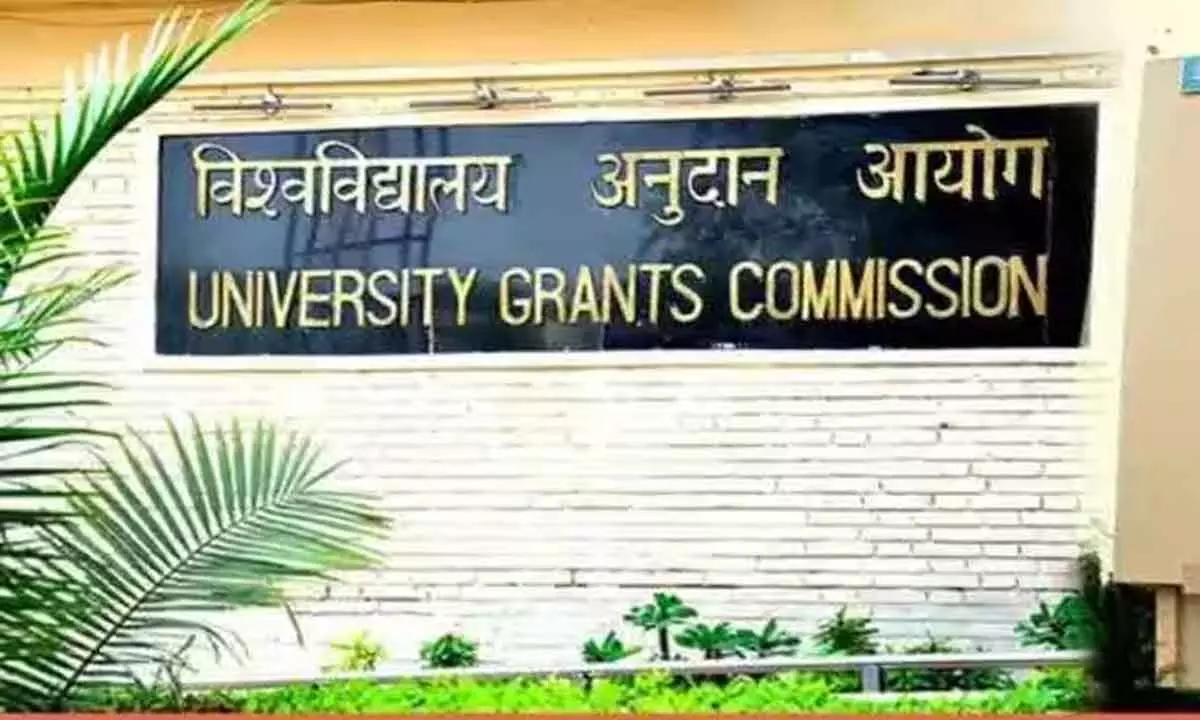UGC guidelines for sustainable university, industry collaboration

The guidelines will also help develop skill sets among learners and make them industry-ready through internships, including field, industry, on-job skills, vocational training, life skills to achieve the learning objectives and attain desired outcomes effectively. Establishing the linkages between university and academia will help create training and apprenticeship opportunities in the industries, R and D labs, and research organisations
New Delhi: UGC has approved the guidelines for sustainable university-industry collaboration that will promote research and development.
These guidelines will be made public on June 30 for feedback.
M Jagadesh Kumar, the UGC Chairman, said, "The National Educational Policy 2020 recommends vibrant University-Industry linkage emphasizing exposing students to real-life examples and making them globally competent. Accordingly, the UGC has developed Guidelines for A Sustainable and Vibrant University-Industry Linkage System for Indian Universities."
The guidelines will also help develop skill sets among learners and make them industry-ready through internships, including field, industry, on-job skills, vocational training, life skills to achieve the learning objectives and attain desired outcomes effectively. Establishing the linkages between university and academia will help create training and apprenticeship opportunities in the industries, R and D labs, and research organisations, Kumar added.
Kumar further said that Higher Educational Institutions (HEI) might take measures to boost research and development through university-industry linkages by creating research and development clusters at state or regional levels. The institutions serving as the cluster head can establish a Regional R and D Advisory Committee (RAC) to advise the R and D growth in the cluster. The cluster may brainstorm on the need assessments, capture local problems and assign them as projects to students, and share details of available infrastructure and expertise for sponsored research.
According to UGC, every HEI may create an Industry Relations Cell (IRC) to enable collaborative project creation between a university faculty group and an industry group and explore funding sources from various stakeholders.
On the other hand, the industries may create University Relations Cell (URC) to address and serve the R and D needs of the industry and drive the actions related to supporting student internships and apprenticeships.
The universities may appoint highly experienced industry professionals to governance bodies. Further, they may invite professionals from the industry as 'Professors of Practice' as per the UGC Guidelines.
Kumar said that the exchange of experts for R and D project collaboration is also essential. Joint workshops and training programmes between universities and industries, as industry support for creating advanced facilities and vocational training centers, can be crucial to this. Enterprises may establish university-industry chairs and support scholarship schemes to attract meritorious young researchers to universities, he added.
The critical responsibilities of the URC and IRC include collaborative development of new technologies in research labs. Joint collaborative degree programmes tailored for industry personnel. Project or dissertation work executed under the joint guidance of faculty and industry experts. Appraisal of research, expertise, and facilities by universities through IRCs. Credit assignment and distribution of internships as per UGC guidelines. Additional internships based on recommendation or students' interest. Designation of faculty members and coordinators for handling internships
URC is responsible for creating and managing internships in the industry. Periodic evaluation of internship outcomes by universities. Inclusion of vocational education through electives and guidance for students. Utilization of industry resources for training in courses.
Kumar said that the UGC encourages higher education institutions and industries to establish URC and IRC on their campuses for a sustainable and vibrant university-industry linkage.














